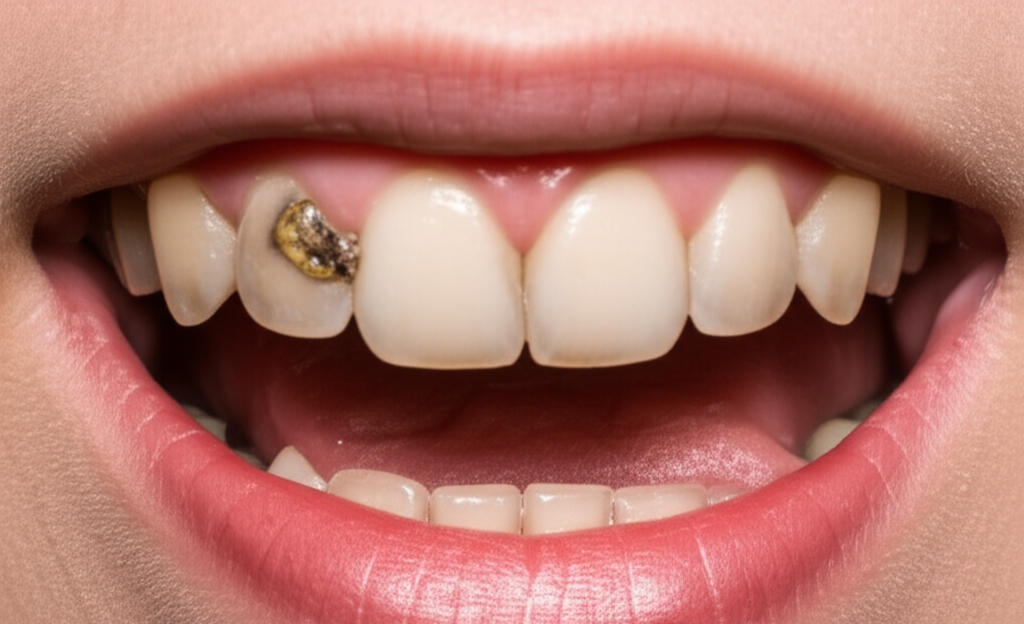
Can Diabetes Cause Dental Problems? A Comprehensive Guide
If there’s one thing I’ve learned living with diabetes, it’s that looking after my blood sugar is about way more than just food and medicine—it’s a whole-body thing, right down to my teeth and gums. I didn’t figure this out at first, but over the years, my own experience (and a bunch of rushed dentist visits) taught me a big lesson: diabetes and dental health are closely linked. Let me share what I’ve learned about how and why this happens, plus all the simple ways to help prevent problems and spot trouble early.
Table of Contents
- How Diabetes Messes With Your Mouth
- Dental Problems Diabetics Get Most Often
- Easy Ways to Prevent Dental Trouble When You Have Diabetes
- When to Call the Dentist Right Away
- Special Tips for Dental Work If You’re Diabetic
- Wrapping Up: Why Mouth Care Is Worth It
How Diabetes Messes With Your Mouth
Looking back, I really didn’t get that my mouth could show what’s going on in my whole body. It turns out, diabetes affects your mouth more than most people think. I remember reading about the “two-way street” — not only can diabetes make dental problems worse, but gum disease can make blood sugar harder to handle. Here’s a simple breakdown of what I’ve seen and learned.
High Blood Sugar: The Main Issue
The fastest way to think about it is like this: your mouth is filled with tiny bacteria—not all of them are bad, but some want to cause trouble. When my blood sugar goes up, there’s more sugar in my spit. This gives the “bad” bacteria more food, so they grow fast.
Just like putting sugar in a jar helps germs multiply, high blood sugar in your spit makes your mouth a perfect home for bacteria and plaque. These bugs then make acids that eat away at your teeth and cause cavities, gum disease, and infections.
Also, high blood sugar messes up the little blood vessels in your gums. These vessels bring food and air (oxygen) to gums to keep them healthy—if they get hurt, your gums won’t heal as good. Diabetes also slows down your body’s defense system, making it easier for infections to start and harder to fix them.
Less Saliva (Dry Mouth/Xerostomia)
One thing that surprised me: diabetes can make your mouth feel super dry. It’s more than just annoying—it’s actually a problem. Spit isn’t just for keeping things wet; it washes away old food, helps fight off germs, and stops acids from hurting teeth. When my mouth is dry (they call it xerostomia), I’m more likely to get cavities, sore gums, and it can even make it hard to eat or talk. And things taste weird—coffee in the morning tastes “off.”
If you ever feel your mouth is sticky or dry, or it burns after sleep, you might have a dry mouth from diabetes. When this happens, I check my blood sugar and keep a water bottle nearby.
Dental Problems Diabetics Get Most Often
Right after my diagnosis, I was shocked how quickly I got new mouth problems. Every dentist visit brought some new warning or treatment. Turns out I’m not alone—if you have diabetes, it’s common to get more dental issues, even if you’re pretty careful.
Gum Disease (Periodontal Disease) – The Biggest Problem
For me, gum disease became the main trouble. My dentist told me there are two main stages:
#### Gingivitis: The First Warning
At first, I ignored my gums bleeding when I brushed, thinking I just brushed too hard. Nope, that’s the first warning—gingivitis. Other signs are red or puffy gums, sore spots, sometimes a bad taste or bad breath that doesn’t go away. Diabetics are two to three times more likely to get gum disease than people without diabetes. If you have diabetes, there’s a good chance your gums might have problems sooner or later.
#### Periodontitis: The Next Step
If you don’t treat those first signs, the gum problem can get worse. Then you get periodontitis. Now the disease goes deeper. You start to lose the bone under your gums, the gums pull away from your teeth, teeth might get wobbly, and you could even lose them. I met a guy at a support group who lost a bunch of teeth to periodontitis—he had no idea diabetes could do that.
#### The “Two-Way Street” Thing
Here’s the wild part: taking care of my gums actually helped my blood sugar! There are studies that say fixing really bad gum disease can lower A1C by about 0.3–0.4%, which is like adding a new medicine. Gum disease makes your body stressed, pushes your sugar up, and makes diabetes harder to handle. That’s why doctors now say gum disease is one of the big six problems diabetes can cause.
More Cavities (Dental Caries)
A dry mouth is more than just a pain. More than half of people with diabetes make less spit. When you put that together with sugar in your spit, the bad germs win. I started noticing tiny dark spots on my teeth—even though I brushed a lot. When your mouth is dry, or your teeth feel “fuzzy,” it’s time to check your teeth routine.
Thrush (Candidiasis)
One day I saw white stuff on my cheeks and tongue—that was oral thrush. People with diabetes, especially with high blood sugar or after antibiotics, get it way more. What helped me was figuring out the burning feeling and funny taste. Easy treatment got rid of it, but it really showed me the importance of brushing and keeping my sugar down.
Other Mouth Problems
- Slow Healing: Small things like fillings or getting a tooth pulled seemed to heal slower than I expected. If your mouth heals slowly, watch out.
- Burning Mouth: Sometimes my mouth or tongue would burn or tingle. This usually meant my blood sugar was bouncing up and down.
- Food Tastes Weird: Sometimes nothing tasted right. Diabetes can mess with taste or dry mouth can make food “blah.”
- Easier Infections: Friends of mine with diabetes got sores or swelling that wouldn’t go away—healing can just be harder.
If you want to dig in more, this resource helped me understand all the diseases connected to teeth and diabetes.
Easy Ways to Prevent Dental Trouble When You Have Diabetes
After years of learning (and too many dentist bills), I made my own plan. Here’s what really works for me and others with diabetes. These tips line up with what most doctors and dentists say.
Keep Blood Sugar Steady
The most important thing—try to keep your blood sugar where the doctor says. I check my sugar a lot, stick with my diabetes plan, and keep up with my doctor. Keeping sugar under control helps stop swelling, helps things heal, and cuts down on any mouth problems. Keeping your A1C in the goal range is tough, but it makes a big difference.
Brush and Floss Really Well
It sounds simple, but it really does work.
- Brush twice a day with toothpaste that has fluoride in it. Don’t rush—make sure you brush all your teeth.
- Floss every day. You’d be surprised what you pull out from between your teeth.
- If your dentist says it’s okay, you can use a mouth rinse that fights germs.
- If you wear dentures, make sure you clean them every day.
Want to see some cool new ways to take care of your teeth? Digital dental labs have some new tech that’s making care easier.
Go to the Dentist Regularly
Don’t just wait for pain! I go to the dentist at least every 3–6 months. These visits don’t just clean my teeth—they can catch little problems before they become big ones. Always tell your dentist you have diabetes—it matters for your care.
Early warning makes things easier. At one checkup, my dentist found gum swelling before I felt anything. A quick cleaning and some simple changes at home saved me a lot of trouble.
Healthy Living Tips
What you do outside the dentist’s office also matters. My big tips:
- Quit smoking. It makes gum trouble worse and makes diabetes way harder to control.
- Cut back on sugary foods and drinks. Soda and candy feed the germs in your mouth.
- Drink water. It helps with dry mouth and gets your spit going.
You can find more easy ideas on taking care of your teeth and teeth facts.
When to Call the Dentist Right Away
It’s smart to be safe. If you see any of these signs, get a dentist appointment soon:
- Bleeding, red, or sore gums
- Bad breath that won’t go away
- Loose teeth or your teeth don’t fit together like before
- Any mouth pain—even if it’s not bad
- White or red spots (could be thrush or even early warning of something serious)
- Trouble biting, chewing, or swallowing
Waiting just makes things worse, costs more, and hurts more. Better to get it checked out early.
Special Tips for Dental Work If You’re Diabetic
Dental work (like fillings or crowns) can be harder if you have diabetes. Here’s what I do:
Before the Dentist
- Always tell the dentist (and helpers) that you have diabetes and how you’re doing with your sugars.
- Ask if you need any changes to your medicine or if you should eat before your visit—sometimes missing a meal can make your blood sugar crash.
- Try to have your sugar in a good range for a few days before any dental work. High sugar means slower healing.
If you’re thinking about getting a crown or bridge, check out high-quality labs like this one—some labs know how to handle special needs for diabetics.
After the Dentist
Healing is slower if your sugars are high. Here’s my simple after-care:
- Watch for swelling, red spots, pus, or fever.
- Keep your mouth clean, just like your dentist says.
- Stick to your normal medicine times and don’t skip meals.
Call your dentist quickly if there’s pain or bleeding that won’t stop.
Wrapping Up: Why Mouth Care Is Worth It
Honestly, before diabetes, I just figured my teeth were fine on their own. Now, mouth care is a key part of my daily diabetes plan. Is it more work? For sure. But catching stuff early—or stopping it before it starts—is so much better than losing teeth or fighting big infections.
Managing diabetes isn’t only about blood tests and medicine—your mouth matters too. Every little thing helps, from brushing after eating to not missing your regular cleanings.
If you’re new to diabetes or struggling to keep up with both blood sugar and teeth, my advice is easy: put your mouth on your care list. Your teeth, gums, and even your overall health will be better for it. As I found out, looking after your mouth really does make a difference in your whole body.
> Want to see how your mouth links to your whole body or learn about specific problems? The guides at teeth health and dental diseases explain things in simple words, with no scare tactics.
Still have questions or want to talk more? Reach out—managing diabetes and dental health is different for everyone, but there’s always help.








